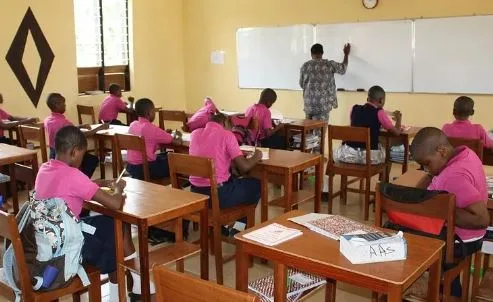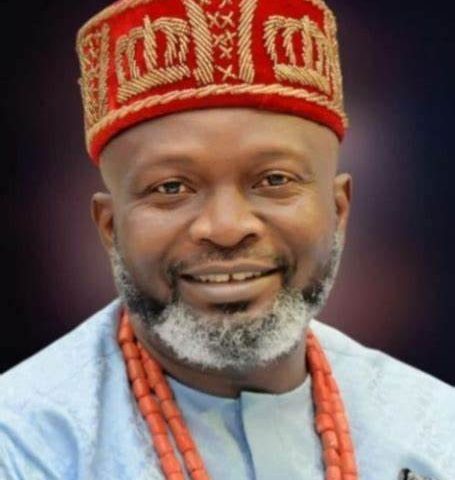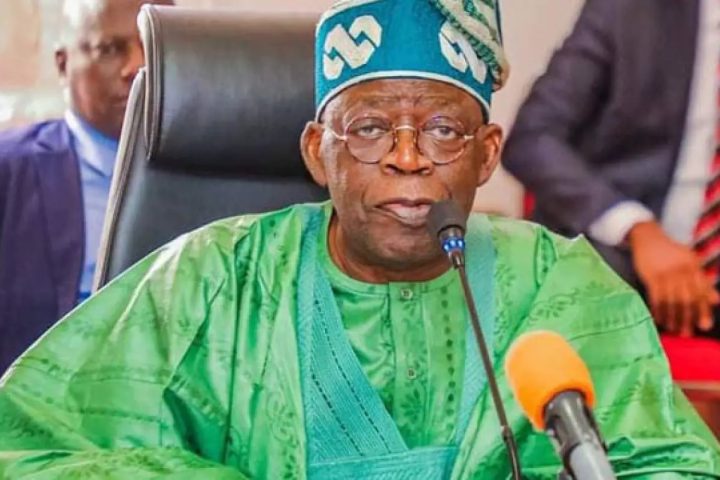The Federal Government has announced a delay in the implementation of the new basic school curriculum, shifting the commencement date to September 2025.
This postponement follows a review of logistical and structural challenges that need to be addressed before full implementation.
Join our WhatsApp ChannelGovernment’s Decision and Justification
The Minister of Education, Dr. Tunji Alausa, made this known during a press conference in Abuja on Friday. He explained that the government required additional time to properly prepare for the transition, including teacher training and infrastructure development.
“That curriculum starts in September 2025 with the new student enrolment. We are now going through the last phase of it, which is teacher training. We are training our teachers to implement that curriculum. So it is set to start in the new academic session in the September 2025 admission year,” Alausa said.
The announcement reverses an earlier plan by former Education Minister, Prof. Tahir Mamman, who had scheduled the implementation for January 2025. However, the process faced setbacks due to logistical difficulties, which were reported in December 2024.
Key Changes in the New Basic School Curriculum
The revised curriculum introduces a compulsory 12-year uninterrupted basic education system, which will lead to the phasing out of the Basic Education Certificate Examination (BECE), commonly known as ‘Junior WAEC.’ This means that students will transition seamlessly from primary education to senior secondary school without taking an exit exam at the junior secondary level.
READ ALSO: Nigerian Govt Introduces 12-Year Basic Education Model, Scraps JSS, SSS
Dr. Alausa emphasised the need for this change, stating, “Currently, we have Primary Six. After finishing Primary Six, they go to Junior Secondary School. The Common Entrance exam has been abolished, except for those going to Federal Unity Schools. Now you have BECE that you take from Junior Secondary School to Senior Secondary School. We will phase out BECE as well. So the kids will just flow from Primary Six, Junior Secondary School, and Senior Secondary School.”
According to the minister, the new system will reduce dropout rates, as students who leave school after JSS3 often lack the necessary education and skills to be self-sufficient. “If we do that, we would have inculcated better education in these children. We won’t have people dropping off at JSS Three. At that point when they drop out at that level, they are not equipped. They don’t have enough education. So they become not useful to themselves and society. It is just adding three more years of education for our children. This, we believe, will improve their ability to move forward in life,” he added.
Vocational Skills and Funding Plans
A major component of the new basic school curriculum is the integration of vocational education. The curriculum will introduce 15 vocational skills, including plumbing, robotics, beekeeping, hairstyling, makeup, tiling, floor works, phone repairs, and solar installation. The government believes these additions will equip students with practical skills that can be beneficial for self-employment and career development.
Dr. Alausa also revealed that discussions are underway to secure additional funding for the education sector. He disclosed plans to increase the share of the Consolidated Revenue Fund allocated to the Universal Basic Education Commission (UBEC) from two percent to five percent.
“We want to use one percent of that funding to fund a very important part of our education that has been neglected at this point: Early Child Care Development Education, the pre-primary education, which is not funded. So that we can now create a different kind of funding pattern for our day care centers,” he stated.
Stakeholder Engagement and Next Steps

The minister confirmed that consultations with education stakeholders are ongoing to ensure smooth implementation. The proposal to phase out BECE will be presented to the National Council on Education for approval later in the year.
With the new basic school curriculum now set for September 2025, the Federal Government aims to address the structural and logistical gaps to ensure a successful rollout. Education authorities are hopeful that the extended timeline will allow for the necessary preparations, ultimately leading to an improved and effective education system for Nigerian students.
Emmanuel Ochayi is a journalist. He is a graduate of the University of Lagos, School of first choice and the nations pride. Emmanuel is keen on exploring writing angles in different areas, including Business, climate change, politics, Education, and others.


















